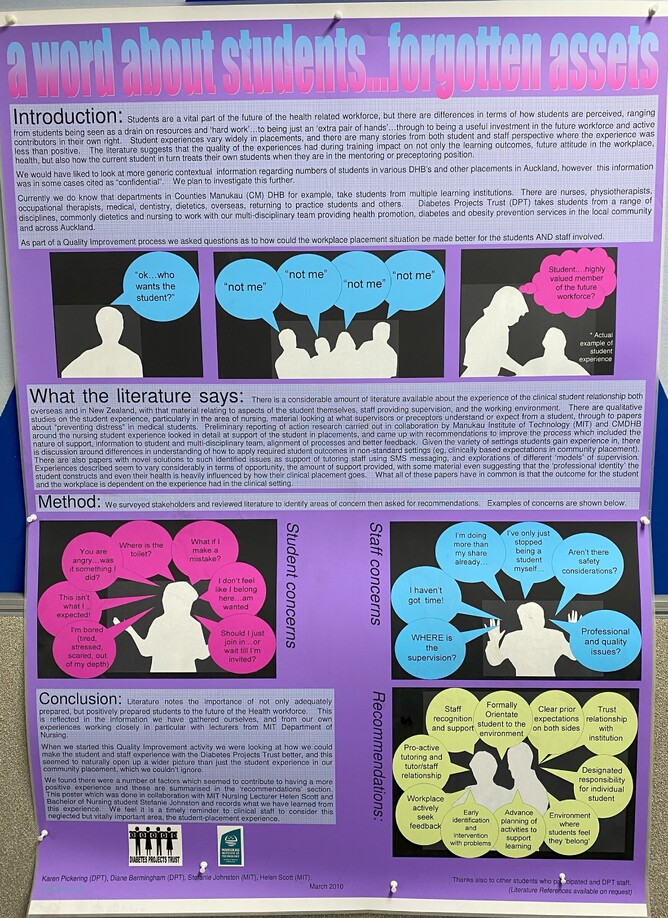This collaborative poster between MIT and Diabetes Projects Trust has been presented at the 2010 NZSSD conference. Our organisation thrives on working with students, they learn from us, we learn from them. We had a joint poster at the NZSSD conference describing nursing student concerns and experience as well as the literature around the topic. Poster by Karen Pickering, Diane Bermingham, Stefanie Johnston and Helen Scott.
Abstract text below:
A WORD ABOUT STUDENTS…FORGOTTEN ASSETS
Karen Pickering1, Diane Bermingham1, Stephanie Johnston2, Helen Scott2
1Diabetes Projects Trust (DPT), Manukau, NZ; 2Manukau Technical Institute (MIT), Manukau, NZ
In this paper we describe how we are working towards our aim towards developing a student friendly culture within our organization, and to ensure the best possible outcome for staff and the students who spend time with us.
Students are often viewed as being extra work, and even potential hazards in the workplace rather than being seen as individuals who bring their own valuable skills, experiences and perspectives and being an investment in the future. At the Diabetes Projects Trust we have had some excellent experiences, we have also had very average and even poor experiences with students from a variety of institutions and disciplines.
As part of a quality improvement process which has involved gathering information using a variety of methods including observation, survey, and discussion, we have identified some key factors which may help make the student (and the workplace) experience more successful. These factors include for staff, the relationship with the representative of the learning institution (usually tutors) which increases constructive and honest dialogue, clear objectives being provided up-front, management recognition that organization staff may feel under pressure with increased demands on their time and need support themselves and there must be administrative capacity at the time to cope. For students, knowing what to expect before arriving, having someone to report to within the organization, having pre-planned suitable activities in line with ability and interests, early identification of problems, and students express a desire to ‘belong’, feel welcomed and included.
In conclusion, students do entail additional work however with support they have an important contribution to make both professionally and through being members of a team. There are opportunities after positive placement experiences for encouraging promotion of organizations interests (eg, healthy eating) by students in the future, as well as networking over the longer term.


